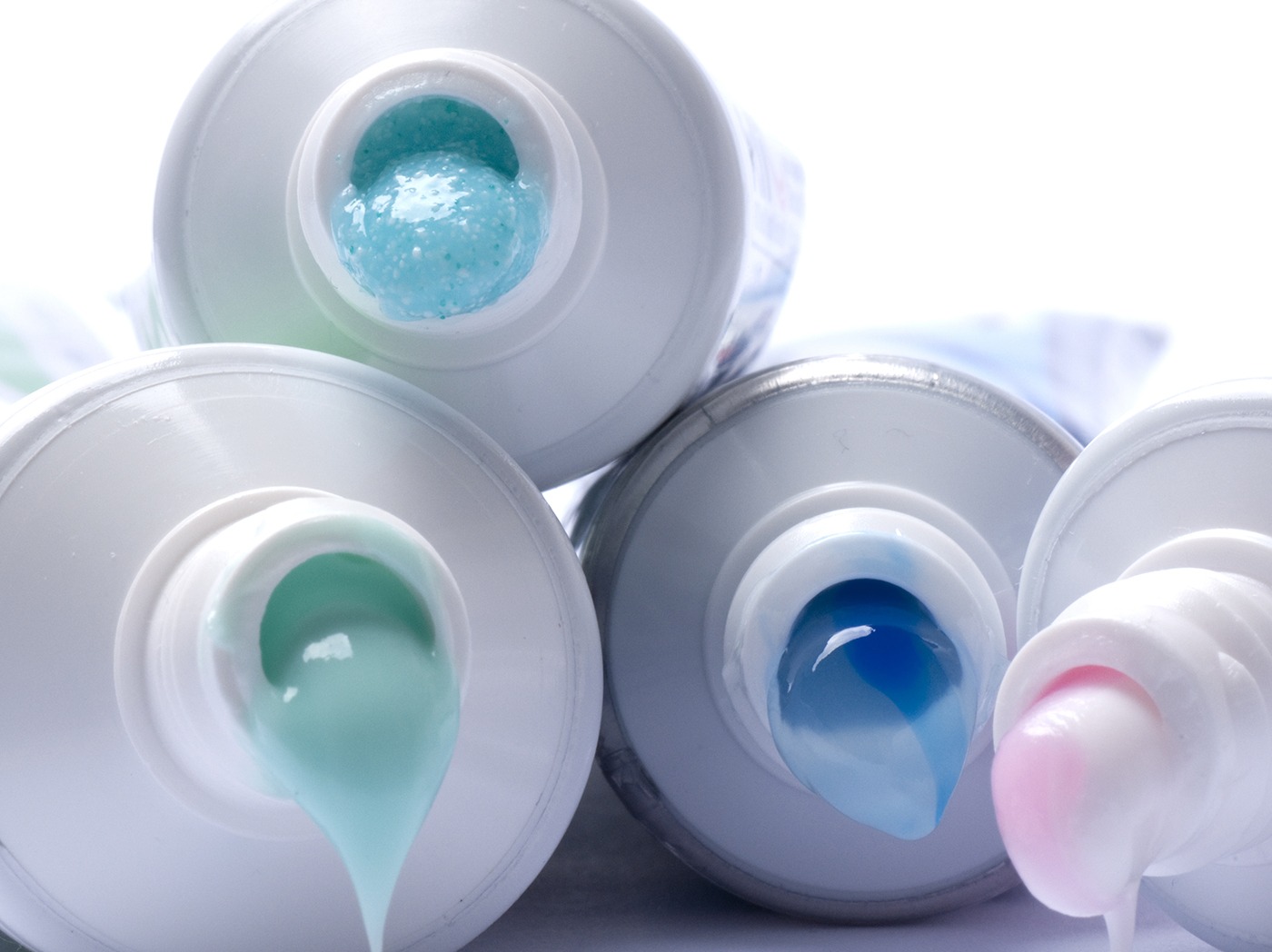Toothpastes

Do you ever stand in the oral care section at a store—maybe your local supermarket, maybe a general retailer or a pharmacy—and wonder why there are so many different types of toothpaste? Think about how many brands there are—and then how many different types of toothpaste there are for each brand! Crest 3DWhite, Pro-Health, Pro-Health Advanced, with Scope, Sensi, regular old Crest, Kids’ Crest… the list goes on and on.
A helpful way to think about your toothpaste choice is to think about your goals, beyond basic hygiene, when you brush. Do you want fresh breath or whiter teeth? Do your teeth hurt when you brush? Do you want to avoid a long cleaning next time you’re at the dentist? When you answer those questions, you’ll start to narrow down that overwhelming selection of toothpastes to a more manageable few.
There are a few basic types of toothpastes out there today. However, it’s important to realize that many toothpastes fit into one or more of the categories. (This is why there are more than 40 different types of Crest alone, after all.)
Fluoride Toothpaste
Fluoride toothpastes contain fluoride compounds to help prevent tooth decay. Fluoride works by strengthening, and even helping repair, tooth enamel. These toothpastes vary in the amount and type of fluoride compounds they contain and can come in a variety of flavors that appeal to both adults and children.
Whitening Toothpaste
If you’d like your teeth to look a little whiter, whitening toothpastes can help. They’re not as effective as dedicated whitening products (like whitening strips), but they can help you maintain whitened teeth. However, keep in mind that many whitening toothpastes can be more abrasive than regular toothpastes. If you use them, give your teeth an occasional break by using less abrasive toothpastes as well!
Desensitizing Toothpaste
Some people experience pain when their teeth are exposed to cold, heat, or touch—even the gentle pressure applied when brushing their teeth. If you experience this condition, called dentin hypersensitivity, you can use desensitizing toothpaste to make brushing a more pleasant (or at least not painful) activity.
Anti-plaque Toothpaste
Anti-plaque toothpastes help prevent plaque from accumulating around your teeth, reducing the risk of both tooth decay and gum disease. There are a variety of anti-plaque compounds out there, including Triclosan (an anti-bacterial compound) and zinc citrate (which supports your immune system).
Kids’ Toothpaste
Toothpastes for kids may or may not have fluoride in them—and that’s actually not a problem. First of all, the physical action of brushing (and flossing) loosens plaque and helps protect your teeth. Typically, toothpastes made for children have fruity flavors and lower levels of fluoride in case of swallowing.
To be honest, the most important choice you make is to brush and floss regularly. The best toothpaste for you to use is one that supports your goals for oral health, and that you will use twice a day, every day.
Of course, if you’d like to find out more about toothpastes, or want specific recommendations, we’re happy to help. Call your Peterborough, ON dentist at 705-755-1100 today!
Hours
Monday: 9am - 6pm
Tuesday: 8am - 5pm
Wednesday: 9am - 6pm
Thursday: 8am - 5pm
Friday: 8am - 3pm
Saturday: By Appointment Only
